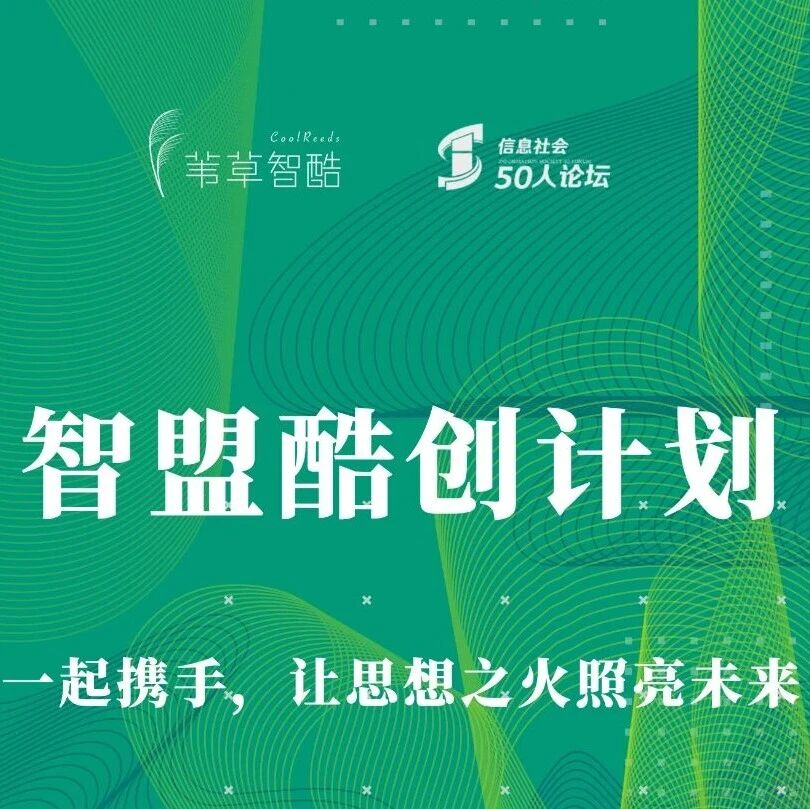2021泛太平洋因果推断大会是自2019年起由北京大学公共卫生学院生物统计系,北京大学北京国际数学研究中心发起的因果科学领域一年一度的盛会。盛会将于9月11日至12日线上举办,面向所有对因果科学感兴趣的相关研究人员,探索新的科研方向。会议将会使用ZOOM平台全球同步直播,期待热爱学习的你与我们一起攀登因果科学的阶梯!
集智俱乐部将对大会进行全程直播,扫描文中二维码或点击文末“阅读原文”,即可进入直播间。
2021泛太平洋因果推断大会
The 2021 Pacific Causal Inference Conference
暨中国现场统计研究会生物医学统计学会2021年会
jointly with 2021 Annual Meeting of Biomedicine Statistics Association of Chinese Society of Applied Statistics
因果推理在统计学、生物统计学、生物医学、计算机科学、经济学、流行病学和各种社会科学等领域都得到了广泛的应用。2021年度 Pacific Causal Inference Conference会议将于9月11日至9月12日在北京举行。本次会议将集中讨论因果推理的最新进展。中国现场统计研究会生物医学统计学会将同期举办2021年会。
会议诚邀国内外相关专家学者参会,中国现场统计研究会生物医学统计学会会员请拨冗参会。
*会议详细日程安排最终版本以会议当天安排为准
会议将于北京9月11日至9月12日线上举办,全球同步分享,海外参会的同学请注意时差合理安排参会:
北京时间Beijing(UTC/GMT +8.00)
美国东海岸时间EST(UTC/GMT -4.00)
美国西海岸时间PST(UTC/GMT -7.00)
会议网址:http://conference.bicmr.pku.edu.cn/meeting/index?id=97
https://live.bilibili.com/8091531
因果推理的目标是将外部知识与学习设计结合起来,得到变量之间的因果关系。尤其是在人工智能技术遭遇瓶颈的现在,因果推理的方法也越来越受到不同领域的重视,它在人工智能、统计学、生物统计学、生物医学、计算机科学、经济学、流行病学和各种社会科学等领域获得了广泛的应用。北京大学讲席教授、北京大学公共卫生学院生物统计系系主任、北京大学北京国际数学研究中心生物统计和信息研究事室主任周晓华等发起了本次2021泛太平洋因果推断大会,会议将集中讨论因果科学在不同领域的最新进展。会议邀请了众多国内外因果科学学术大拿,共同讨论因果科学的最新进展。
每位讲者将用25分钟的时间汇报自己在因果领域的最新工作,9月11、12日累计15个小时的科研成果汇报,这将是因果科学领域一年一度的大型盛会!活动期间也会有华为因果挑战赛的获奖团队跟进获奖项目报告,共同助力本次2021泛太平洋因果推断大会的成功举办。
以下是集智因果社区同学整理汇总了所有参会讲者的信息,包括了讲者的背景介绍,研究兴趣,科研课题以及个人网站信息等丰富的资料~ 有些教授有开放申请的硕士博士的名额哦,同学们可以移步认真调查,有选择的出席会议。
Carlos Cinelli
University of Washington

Speech: An omitted variable bias framework for sensitivity analysis of instrumental variables
Time: Beijing 9/12/21 10:45 AM
Speaker:
Carlos is a PhD candidate in the Department of Statistics at the University of California, Los Angeles (2016-2021). Starting this Fall 2021, He is joining the Department of Statistics at the University of Washingtonas an Assistant Professor.His research focuses on developing new causal and statistical methods for transparent and robust causal claims in empirical sciences.
Interest:
-
Inferential challenges faced by social and health scientists
-
The intersections of causality between machine learning and artificial intelligence
https://carloscinelli.com/index.html
Clark Glymour
Carnegie Mellon University
Speech:Two Dogmas of Methodology
Time:Beijing 9/11/21 9:15 AM
Glymour is the founder of the Philosophy Department at Carnegie Mellon University, a Guggenheim Fellow, a Fellow of the Center for Advanced Study in Behavioral Sciences, a Phi Beta Kappa lecturer,and is a Fellow of the statistics section of the AAAS. Glymour and his collaborators created the causal interpretation of Bayes nets.
-
epistemology (particularly Android epistemology)
-
-
-
-
Personal Website: https://www.cmu.edu/dietrich/philosophy/people/emeritus/glymour.html
Eric J. Tchetgen Tchetgen
University of Pennsylvania
Speech: Proximal Causal Inference
Time: Beining 9/12/21 9:00 AM
Eric J. Tchetgen Tchetgen is the Luddy Family President’s Distinguished Professor at the Wharton School of the University of Pennsylvania.
Professor Tchetgen Tchetgen comes to the University of Pennsylvania from Harvard University, where he has served since 2008 as Professor of Biostatistics and Epidemiologic Methods with joint appointments in the departments of Biostatistics and Epidemiology at the T.H. Chan School of Public Health.
He researches infectious diseases, including HIV/AIDS, and the role of genetic and social factors in the patterns, causes, and effects of public health. Professor Tchetgen Tchetgen has received grants from the National Institutes of Health and the Centers for Disease Control.
He completed his Ph.D. in Biostatistics at Harvard University in 2006 under the supervision of Professor James M. Robins. He received his B.S. in Electrical Engineering from Yale University in 1999.
https://statistics.wharton.upenn.edu/profile/ett/#news
Fan Li
Speech: Is being an only child harmful to psychological health? Evidence from a local instrumental variable analysis of the China One-Child Policy
Time: Beijing 9/11/21 8:45AM
Fan Li, PhD, is an expert in causal inference, the field of statistics concerned with evaluating treatments in randomized experiments and observational studies. She earned her BSc in Mathematics from Peking University and her PhD in Biostatistics from Johns Hopkins University. Prior to joining the Duke faculty, she completed a postdoctoral fellowship at Harvard Medical School’s Department of Health Care Policy.
Her research includes advanced Bayesian methods for causal inference, missing data, and variable selection. Dr. Li’s applied interests span the social sciences, economics, health policy, epidemiology and engineering.
https://www2.stat.duke.edu/~fl35/
Fan Xia
Speech: Decomposition, Identification and Multiply Robust Estimation of Natural Mediation Effects with Multiple Mediators
Time: Beijing 9/11/21 11:15 AM
Fan is an associate Professor in Molecular and Human Genetics, Baylor College of Medicine. He is the Vice President of Clinical Genomics and Baylor Genetics in University of Washington.
https://www.bcm.edu/people-search/fan-xia-33221
Jiji Zhang
Hong Kong Baptist University
Speech: Do-calculus and Modularity in Causal Markov Categories
Time: Beijing 9/11/21 15:45 PM
Zhang Jiji received his PhD in Logic, Computation, and Methodology from the Department of Philosophy at Carnegie Mellon University in 2006, and taught previously at California Institute of Technology and Lingnan University, before joining the Department of Religion and Philosophy at Hong Kong Baptist University in 2021. His philosophical interests lie mainly in philosophy of science, formal epistemology, and logic. The interdisciplinary part of his research centers around the topic of causation, addressing both the epistemological and logical aspects of causal reasoning, and the statistical and computational aspects of causal modelling and discovery. His work has appeared in both premier journals in philosophy, such as Journal of Philosophical Logic, British Journal for the Philosophy of Science, Philosophy of Science, Synthese, etc., and in leading venues in computer science and statistics, such as Artificial Intelligence, Journal of Machine Learning Research, Statistical Science, as well as some top conference proceedings in the field of Artificial Intelligence. With the new opportunities provided by the Ethical and Theoretical AI lab, he aims to work with colleagues across and beyond the university to apply causal modelling tools to shed new light on some important issues with implications for AI ethics, including especially machine learning interpretability, algorithmic bias, and AI-powered personalized medicine.
-
“Parsimony in Causal Inference: Epistemic Justifications and Methodological Implications” (Supported by the RGC of Hong Kong)
-
“Logical Investigations of Causal Models and Counterfactual Structures” (Supported by the RGC of Hong Kong)
-
“Causation, Decision, and Imprecise Probabilities” (Supported by the RGC of Hong Kong)
https://research.hkbu.edu.hk/researcher/prof-jiji-zhang
Jinzhu JIA
Speech: Improved Covariance Adjusted Average Treatment Effect Estimate
Time: Beijing 9/11/21 14:30PM
Jinzhu JIA, researcher and doctoral supervisor, School of Public Health, Peking University. He graduated from Peking University in January 2009. From January 2009 to December 2010, UCBerkeley postdoctoral. From January 2011 to January 2018, he worked in the Department of probability and Statistics of the School of Mathematical Sciences of Peking University and the Statistics Center of Peking University, during which he visited Harvard University for one year. He joined the School of Public Health of Peking University in February 2018. The main research interests are high-dimensional statistical inference, big data analysis, statistical machine learning, causal inference, biological statistics and so on. He has published many papers in the fields of theoretical research on variable selection methods, the application of high-dimensional data and big data’s statistical learning, and causal inference. He serves as deputy secretary-general of China probability and Statistics Society, executive director of Young statisticians’ Association, director of Computing Statistics Branch of Field Statistics Research Society, and director of High-dimensional data Statistics Association of Field Statistics Research Society.
-
-
High-dimensional statistical inference
-
-
Statistical machine learning
-
-
National Natural Science Foundation of China (NSFC), Statistical Modeling of text Mining, 2016/01-2019/12, moderated.
-
The Youth Science Project of the National Natural Science Foundation of China, sparse ANOVA and sparse High-dimensional Bayesian Network Learning, 2012/01-2014/12, moderated.
-
The Natural Science Foundation Innovation Group Project, the theory and method of high fidelity audition system, 2012/01-2014/12, participated.
-
Ministry of Science and Technology key research and development program, early identification technology for the effects of air pollution on respiratory and cardiovascular system health, 2017.07-2020.12, participated.
https://sph.pku.edu.cn/info/1418/4187.htm
Jon Michael Gran
Speech: Estimating Causal Effects on Multi-state Outcomes – an Application to Return to Work after Sick Leave using Norwegian Registry Data
Time: Beijing 9/12/21 19:30 PM
Jon Michael Gran is an associate professor at the department of biostatistics of University of Oslo.
-
Analysis of observational data and registries
-
Infectious disease modelling
-
Causal and statistical models for patient outcomes after traumatic injury
-
Effects of workplace initiatives on sick leave and work participation – new statistical and causal models to utilise population registries
https://www.med.uio.no/imb/english/people/aca/jonmic/
Kosuke Imai
Speech: Experimental Evaluation of Machine Learning Algorithms for Causal Inference
Time: Beijing 9/12/21 20:30 PM
Kosuke Imai is a professor in the Department of Government and the Department of Statistics at Harvard University. He is also an affiliate of the Institute for Quantitative Social Science. Before moving to Harvard in 2018, Imai taught at Princeton University for 15 years where he was the founding director of the Program in Statistics and Machine Learning. In addition, Imai served as the President of the Society for Political Methodology from 2017 to 2019 and was elected fellow in 2017. He has been Professor of Visiting Status in the Faculty of Law and Graduate Schools of Law and Politics at the University of Tokyo.
After obtaining a B.A. in Liberal Arts from the University of Tokyo (1998), Imai received an A.M. in Statistics (2002) and a Ph.D. in political science (2003) from Harvard University. His research area is political methodology and more generally applied statistics in the social sciences. Imai has extensively worked on the development and applications of statistical methods for causal inference with experimental and observational data. Other areas of his methodological research are survey methodology and computational algorithms for data-intensive social science research. His substantive applications range from the randomized evaluation of Mexican and Indian national health insurance programs to the study of pretrial public safety assessment in the United States criminal justice system.
Imai is the author of a widely used undergraduate introductory statistics textbook for social scientists, Quantitative Social Science: An Introduction (Princeton University Press, 2017). He has published more than sixty peer-refereed journal articles in political science, statistics, and other fields, and authored over fifteen open-source software packages. Imai has been recognized as a highly cited researcher in the cross-field category by Clarivate Analytics since 2018. In addition, he has won several awards including the Miyake Award (2006), the Warren Miller Prize (2008), the Pi Sigma Alpha Award (2013), the Stanley Kelley, Jr. Teaching Award (2013), the Statistical Software Award (2015), and was the inaugural recipient of Society of Political Methodology’s Emerging Scholar Award (2011). Imai’s research has been supported by National Science Foundation grants as well as grants from other government agencies and private organizations.
-
Computational Social Science:
-
Design and Analysis of Randomized Experiments and Program Evaluation:
-
Elicitation of Truthful Answers to Sensitive Survey Questions:
-
Identification of Causal Mechanisms via Causal Mediation Analysis:
-
Matching Methods for Causal Inference in Experimental and Observational Studies
-
Propensity Score Methods for Causal Inference in Experimental and Observational Studies:
https://rijs.fas.harvard.edu/kosuke-imai
Linbo Wang
Speech: Causal Inference on Distribution Functions
Time: Beijing 9/11/21 19:30 PM
Linbo Wang received his PhD in Biostatistics from University of Washington in 2016. Prior to joining the University of Toronto, he spent two years at Harvard Causal Inference Program. His research interest includes causal inference, graphical models, and modern statistical inference in infinite-dimensional models. He is the recipient of several research awards, including a NSERC Discovery Accelerator Supplement in 2019.
-
Interdisciplinary Research
-
Robust Inference in Infinite-Dimensional Models
https://www.statistics.utoronto.ca/people/directories/all-faculty/linbo-wang
Mark van der Laan
Speech: Higher order Targeted Maximum Likelihood Estimation and its Applications
Time: Beijing 9/11/21 10:45 AM
The goal of Mark’s research group is to develop statistical methods to estimate/learn causal and non-causal parameters of interest, based on potentially complex and high dimensional data from randomized clinical trials or observational longitudinal studies, or from cross-sectional (e.g., case-control sampling) studies. The model assumptions under which these methods are valid should be clearly formulated, so that they can be subject to scrutiny. The estimates should be accompanied by confidence regions for the true parameter values or other types of confidence measures (e.g., variability/reproducibility of clusters as measured by the bootstrap). The longitudinal data structures may involve high dimensional measurements such as whole genome profiles at various points in time; censoring and missingness of data due to a subject not responding well to treatment (or not feeling well); and changes of treatment at various points in time, based on variables related to the outcome of interest. The methods are designed to rely on as few assumptions as possible on nuisance parameters so that they provide maximally objective statistical inference and testing procedures. To develop and refine these methods, work with simulated and real data in collaboration with biologists, medical researchers, epidemiologists, and others.
https://statistics.berkeley.edu/people/mark-van-der-laan
Mats Stensrud
Speech: Causal Inference When Treatment Resources are Limited
Time: Beijing 9/12/21 20:00 PM
Mats is a tenure-track assistant professor of statistics at the Department of Mathematics, EPFL. His research focuses on methods for causal inference. He is particularly interested in settings with exposures and outcomes that depend on time, that is, longitudinal data. Many of his works are inspired by applications in (bio)medicine.
Before he came to EPFL, he was privileged to work with Miguel Hernán and other excellent researchers at Harvard School of Public Health as a Kolokotrones research fellow and Fulbright Research Scholar. He also had the pleasure of being a part-time postdoctoral researcher under supervision of Kjetil Røyslandand Odd Aalen at the University of Oslo. Before he became a full time academic, he had a short career as resident doctor in internal medicine.
Mats received his MD, Dr.Philos in Neuroscience and BSc in Mathematics from the University of Oslo. He also hold a Msc in Statistics from the University of Oxford.
-
2016: Medical doctor (MD), University of Oslo
-
2015: Dr philos (PhD equivalent), Neuroscience, University of Oslo
-
2014: Master of Science (with Distinction), Applied Statistics, University of Oxford
-
2013: Bachelor of Science, Mathematics, University of Oslo
-
2018: Fulbright Research Scholarship, Harvard Chan School of Public Health, Harvard University
-
2018: Publication of the year, The Norwegian Epidemiological Association
-
2014: The Gutierrez-Toscano Prize for the best achievements in the Msc in Applied Statistics, University of Oxford
-
Causal Inference in Cancer Epidemiology:
http://www.med.uio.no/imb/english/research/projects/causal-inference-cancer-epidemiology/index.html
https://www.med.uio.no/imb/english/people/aca/matsjst/index.html
Mike Elliott
University of Michigan and Vertex
Speech: Accounting for Selection Bias due to Death in Estimating the Effect of Wealth Shock on Cognition for the Health and Retirement Study
Time: Beijing 9/11/21 19:00 PM
Michael Elliott is a Professor of Biostatistics at the University of Michigan School of Public Health and Research Scientist at the Institute for Social Research. He received his PhD in biostatistics in 1999 from the University of Michigan. Prior to joining the University of Michigan in 2005, he held an appointment as an Assistant Professor at the Department of Biostatistics and Epidemiology at the University of Pennsylvania School of Medicine, and prior to that as a Visiting Professor of Biostatistics at the University of Michigan School of Public Health and as a Visiting Research Scientist at the University of Michigan Transportation Research Institute. Dr. Elliott’s statistical research interests focus around the broad topic of “missing data,” including the design and analysis of sample surveys, casual and counterfactual inference, and latent variable models. He has worked closely with collaborators in injury research, pediatrics, women’s health, and the social determinants of physical and mental health. Dr. Elliott serves as an Associate Editor for the Journal of the American Statistical Association and the Journal of Survey Statistics and Methodology.
-
design and analysis of population-based surveys
-
development of causal modeling estimators.
https://sph.umich.edu/faculty-profiles/elliott-michael.html
Peng Cui
Speech: Deep Stable Learning and Heterogeneous Risk Minimization
Time: Beijing 9/11/21 13:30 PM
Associate Professor (Tenured),Lab of Media and Network,Department of Computer Science and Technology.He has published more than 100 papers in famous conferences and periodicals in the field of data mining and multimedia, and has won the best paper awards in 7 international conferences and journals. He won the ACM China New Star Award in 2015 and the CCF-IEEECS Young Scientist Award in 2018. He is currently an outstanding member of CCF and a senior member of IEEE.
Research interests include
-
Causal reasoning and stability prediction in big data’s environment
-
Network representation learning, and its application in financial technology
-
Intelligent health care and social networking scenarios
-
Stable Learning and Causal Inference
-
-
-
Social Recommendation and Behavioral Modeling
-
Social-Sensed Multimedia Computing
-
Event Mining from Surveillance Videos
http://pengcui.thumedialab.com/
Peng Ding
University of California, Berkeley.

Speech: Model-assisted Analyses of Cluster-randomized Experiments
Time: Beijing 9/12/21 10:15 AM
Peng Ding is currently an assistant professor in the Department of Statistics at the University of California, Berkeley. From 2004 to 2011, he received a bachelor’s degree in mathematics and economics and a master’s degree in statistics from Peking University. He received a Ph.D. in statistics from Harvard University in 2011-2015, and then did postdoctoral research in the Department of Epidemiology at Harvard School of Public Health.
-
-
Missing data and experimental design
https://statistics.berkeley.edu/people/peng-ding
Robin Evans

Speech: Parameterizing and Simulating from Causal Models
Time: Beijing 9/11/21 20:00 PM
Robin is an Associate Professor in Statistics, and a fellow of Jesus College. He received his PhD in Statistics from the University of Washington in 2011, and was a Postdoctoral Research Fellow at the Statistical Laboratory in Cambridge from 2011 to 2013. His research interests include graphical models, causal inference, latent variable models and algebraic and semi-parametric statistics.
Personal Website:
http://www.stats.ox.ac.uk/~evans/
Ruichu Cai
Guangdong University of Technology
Speech: Hidden Causal Representation Learning via Auxiliary Variables
Time: Beijing 9/11/21 16:15 PM
Ruichu Cai is a professor and doctoral supervisor at the School of Computer Science, Guangdong University of Technology. Received a doctorate in engineering from South China University of Technology in 2010 and entered Guangdong University of Technology; was named associate professor in 2011; was named professor and doctoral supervisor in 2015; went to National University of Singapore during 2007-2009 and 2013-2014 Visited and studied with UIUC Advanced Digital Science Research Center. He has presided over 2 National Natural Science Foundation of China, 1 Provincial Outstanding Youth Fund, 1 Pearl River Science and Technology Rising Star and other projects. Dr. Cai focuses on research in fields such as causality discovery and high-dimensional data mining. More than 30 papers have been published, including important conferences in the fields of ICML, SIGMOD, SDM, and internationally renowned journals such as TNNLS, Bioinformatics, TKDE, NN, and PR; 4 authorized invention patents, 2 of which have been implemented in NetEase’s mailbox; related achievements have been implemented successively Won the second prize of Provincial Science and Technology Award (the fourth completer), and the first prize of Provincial Science and Technology Award (the third completer).
-
Guangdong Provincial Natural Science Outstanding Youth Fund: High-dimensional Data Causality Discovery Theory and Its Application.
-
2014 Guangzhou Science and Technology Plan Project: Multi-source Heterogeneous Big Data Enterprise Public Opinion Intelligent Monitoring Platform (2014Y2-00027)
https://computer.gdut.edu.cn/info/1077/1773.htm
Ryo Okui
Seoul National University
Speech: Inference on Effect Size after Multiple Hypothesis Testing
Time: Beijing 9/11/21 14:00 PM
Ryo is an Associate Professor in Department of Economics, Seoul National University.
https://econ.snu.ac.kr/people/faculty?mode=view&profidx=88
Sebastian Engelke

Speech: Causality for Extreme Values
Time: Beijing 9/11/21 16:45 PM
Sebastian is assistant professor at the Research Center for Statistics at the University of Geneva, where is holding an Eccellenza grant. He was visiting professor at the Department of Statistical Sciences at the University of Toronto from 2018 – 2019. Previously he was an Ambizione fellow at EPF Lausanne with Anthony Davison. Sebastian did his studies in Mathematics at University of Göttingen and UC Berkeley, and he finished his PhD as a Deutsche Telekom Foundation fellow in 2013 at the University of Göttingen with Martin Schlather. His research interests are in extreme value theory, spatial statistics, graphical models and data science. Since 2018, Sebastian is Associate Editor of the Springer journal Extremes and the Scandinavian Journal of Statistics.
Shu Yang
North Carolina State University
Speech: Semiparametric Efficient Estimation of Structural Nested Mean Models with Irregularly Spaced Observations
Time: Beijing 9/12/21 8:30 AM
Shu Yang graduated from Iowa State University in 2014 with major in Mathematics and comajor in Statistics working with J.K. Kim and Z. Zhu. After graduation, she joined Harvard TH Chan School of Public Health as a post-doc with Judith Lok. She then joined NC State as a faculty member since 2016.
⋆ Causal inference from longitudinal observational data
⋆ Semiparametric efficient estimation
⋆ Missing data analysis and imputation methods
⋆ Spatial data analysis, nonstationary process and spectral methods
⋆ Survey sampling and methodology
-
Data Combination and Integrative Analyses
-
Spatial and Temporal Causal Inference
-
Causal Inference with Spatial Data
-
Transform Real-World Data to Evidence
-
Theory and methods for handling missing data
https://shuyang.wordpress.ncsu.edu/
Sofia Triantafyllou
Speech:Combining Observational and Experimental Data for Personalized Causal Prediction
Time:Beijing 9/11/21 09:45 AM
She is an assistant Professor, Department of Biomedical Informatics in University of Pittsburgh
Developing causal discovery methods in the presence of latent variables, methods for integrative analysis of multiple experiments, modelling and application of causal discovery on neural and biological data.
https://www.dbmi.pitt.edu/node/54091
Stijn Vansteelandt
Ghent University (Belgium) and London School of Hygiene & Tropical Medicine
Speech: Assumption-Lean Inference for Cox Regression Parameters
Time: Beijing 9/12/21 19:00 PM
Stijn Vansteelandt graduated as Master in Mathematics at Ghent University in 1998, and obtained a PhD in Mathematics (Statistics) in 2002 at the same university. After postdoctoral research at the Department of Biostatistics of the Harvard School of Public Health, he returned to Ghent University in 2004, where he is now Full Professor (80%) in the Department of Applied Mathematics, Computer Science and Statistics. He is furthermore Professor of Statistical Methodology (20%) in the Department of Medical Statistics at the London School of Hygiene and Tropical Medicine.
Stijn Vansteelandt is an expert in causal inference: a fast-growing field within statistics, which focuses on the development of statistical methods for inferring the causal effect of an exposure on an outcome from experimental and observational data under minimal and well-understood assumptions. He has authored over 150 peer-reviewed publications in international journals on a variety of topics in biostatistics, epidemiology and medicine, such as the analysis of longitudinal and clustered data, missing data, mediation and moderation/interaction, instrumental variables, family-based genetic association studies, analysis of outcome-dependent samples and phylogenetic inference. He is Co-Editor of Biometrics, the leading flagship journal of the International Biometrics Society, and has previously served as Associate Editor for the journals Biometrics, Biostatistics, Epidemiology, Epidemiologic Methods and the Journal of Causal Inference.
https://users.ugent.be/~svsteela/Site/Welcome.html
Ting Ye

Speech: A Simple Cure for Bias from Weak Instruments and Horizontal Pleiotropy in Mendelian Randomization
Time: Beijing 9/12/21 11:15 AM
Ting Ye is an Assistant Professor of Biostatistics at the University of Washington. Before joining UW, she was a postdoctoral fellow in the Statistics Department of the Wharton School, University of Pennsylvania (mentored by Dylan Small and Sean Hennessy).
-
-
-
-
-
Partial Identification, Precision Medicine
https://sites.google.com/view/tingye
Vincent Tan
University of Michigan and Vertex
Speech: Accounting for Selection Bias due to Death in Estimating the Effect of Wealth Shock on Cognition for the Health and Retirement Study
Time: Beijing 9/11/21 19:00 PM
Vincent started working at Vertex Pharmaceuticals as a Senior Biostatistician in Jan 2020. He have served as a Study Biostatistician for 6 studies – 2 successfully data base locked, 2 transitioned, and 2 ongoing (1 of which just had a Interim Analysis data cut). 3 protocols and 1 SAP were completed during this period. The disease areas that he have worked in are Cystic Fibrosis and Type 1 Diabetes. The study designs that he have been involved in are Phase 1 BA, Phase 3 Mechanistic studies, Phase 3 Open Label Studies, and Phase 1/2 studies. He look forward to continue developing my knowledge on the role of a Study Biostatistician in the pharmaceutical industry at Vertex Pharmaceuticals.
Wang Miao
Speech: Semiparametric Inference for Nonignorable Nonresponse with Paradata
Time: Beijing 9/11/21 17:15 PM
Wang is currently an assistant professor in the Department of Probability and Statistics at Peking University. He studied undergraduate and Ph.D. in the School of Mathematical Sciences at Peking University from 2008 to 2017. He did postdoctoral research at the Department of Biostatistics at Harvard University from 2017 to 2018. He joined Peking University in 2018.
-
-
Missing data analysis, and its applications in biostatistics
-
Epidemiology, economics and artificial intelligence research
https://www.math.pku.edu.cn/teachers/mwfy/
Xiaohua Zhou
Speech:Covariate-Specific Treatment Effect (CSTE) Curve in Precision Using Observational Data with High-Dimensional Covariates
Time: Beijing 9/11/21 15:00PM
Professor and doctoral supervisor of Peking University, currently head of Department of Biostatistics, School of Public Health, Peking University, Director of data Center of traditional Chinese Medicine University of Beijing big data Research Institute, Deputy Director of big data Center of Medical and Health, Director of Biostatistics Laboratory of Beijing International Mathematical Research Center, Chairman of China Branch of International Association of Biological Statistics, President of Biomedical Statistics Branch of China Society for Field Statistics, member of American Association for the Advancement of Science. Member of the American Statistical Society and member of the International Institute of Statistics. At present, he is a top journal of biostatistics, associate editor of StatisticsinMedicine, and editor of Biostatistics&Epidemiology, China Branch of the International Society for Biostatistics. In the top international journal of statistics and biostatistics, J.R.Statist.Soc.B Journal of the American Statistical Association, Biometrika, Ann.Statist,Biometrics,Stat.Med. More than 240 SCI academic papers have been published, of which more than 130 are the first or correspondent authors.
-
-
Causal inference analysis
-
-
-
-
-
-
New statistical methods for development in the field of health services
-
Statistical methods in diagnostic medicine
-
The analysis of skewed cost data
-
Causal inferences in observational studies
-
Causal inferences in randomized with non-compliance
-
Personalized Medicine Using Genomic Information
-
1. Research on Statistical methods of optimal treatment options under the Framework of causal inference, 2018-2021, National Natural Science Foundation of China, Director
-
2. Construction of a technical platform for clinical evaluation of new drugs for major diseases reflecting the characteristics of traditional Chinese medicine, 2019-2024, major special project of the Ministry of Science and Technology, person in charge of statistical analysis and modeling task
-
3. Joint assessment of surgical outcomes and costs by VAMCs, 2012-2015, U.S. Department of Veterans Affairs, moderator
-
4. Statistical methods for modeling health care costs for veterans with chronic diseases, 2009-2013, U.S. Department of Veterans Affairs, moderator
-
5. Statistical methods in Diagnostic Medicine, 2005-2010, National Institutes of Health, Federal Government, moderator
-
6. Statistical methods based on empirical likelihood in Diagnostic Medicine, 2006-2010, National Natural Science Foundation of the Federal Government of the United States, moderator
http://faculty.washington.edu/azhou/
Yanxun Xu
Speech: Personalized Dynamic Treatment Regimes in Continuous Time: A Bayesian Approach for Optimizing Clinical Decisions with Timing
Time: Beijing 9/11/21 10:15AM
Yanxun Xu is an assistant professor in the Department of Applied Mathematics and Statistics. Her research focuses on Bayesian statistics; cancer genomics; clinical trial design; graphical models; nonparametric Bayesian statistical inference for big data analysis; high-throughput genomic date; and proteomics data. She earned her doctorate (2013) at Rice University; her master’s (2010) at Texas Tech University; and her bachelor’s (2007) at Beijing University of Aeronautics and Astronautics.
https://engineering.jhu.edu/ams/faculty/yanxun-xu/
Zhonghua Liu
Speech: MRCIP: a robust Mendelian randomization method accounting for correlated and idiosyncratic pleiotropy
Time: Beijing 9/12/21 9:30 AM
Dr. Liu received his doctorate in biostatistics from Harvard University, advised by Prof. Xihong Lin. He worked on the Wall street as a quantitative strategist in NYC before joining HKU. His current research interests are: Statistical inference for massive data, Big Data Analytics, Causal Mediation Analysis, Machine Learning, Signal Detection, Statistical Genetics and Genomics.
https://www.scifac.hku.hk/people/liu-zhonghua
点击“阅读原文”,进入集智俱乐部直播间
















































